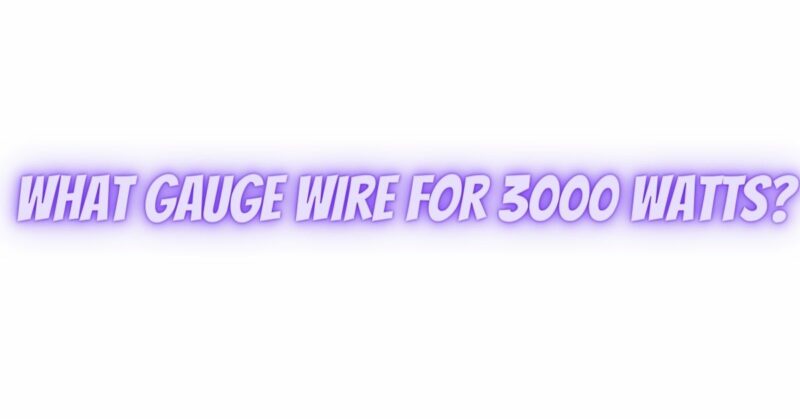When dealing with a high-power audio system that produces 3000 watts or more, selecting the appropriate wire gauge is critical to ensure safety, optimal performance, and sound quality. In this article, we will discuss the factors to consider and recommend the suitable wire gauge for a 3000-watt audio system.
Understanding Speaker Wire Gauges
Speaker wire gauges are classified by their thickness, typically measured using the American Wire Gauge (AWG) system. Lower AWG numbers represent thicker wire, while higher numbers indicate thinner wire. The choice of wire gauge depends on factors such as cable length, power requirements, and amplifier output.
Factors to Consider for a 3000-Watt Audio System
- Amplifier Power Output: The power output of your amplifier significantly influences the choice of wire gauge. In the case of a 3000-watt audio system, you have a powerful amplifier capable of delivering substantial power to your speakers.
- Speaker Impedance: Consider the impedance of your speakers (typically 4 or 8 ohms). Lower-impedance speakers demand more current from the amplifier, which can impact the choice of wire gauge.
- Cable Length: The length of the speaker wire is a crucial factor. Longer cable runs result in increased resistance, potentially leading to signal loss and reduced power delivery to the speakers.
Recommended Wire Gauge for a 3000-Watt Audio System
For a 3000-watt audio system, it’s advisable to use a thick speaker wire gauge to ensure efficient power delivery and prevent overheating or damage to the wire. Here are some general guidelines:
- 16-Gauge Wire: If your cable runs are relatively short (under 25 feet) and your amplifier output is around 3000 watts, 16-gauge wire may suffice. This gauge can handle power levels in the range of 150-200 watts per channel without significant signal loss.
- 14-Gauge Wire: For longer cable runs (25-50 feet) and higher-powered amplifiers, it’s better to opt for 14-gauge wire. This wire gauge can handle power levels of up to approximately 300-400 watts per channel.
- 12-Gauge Wire: If you have a powerful 3000-watt audio system and longer cable runs (over 50 feet), consider using 12-gauge wire. This thicker wire can handle power levels exceeding 500 watts per channel.
- 10-Gauge or Lower: In extreme cases where cable runs are extremely long, or the power demands are exceptionally high, you might need 10-gauge or even thicker wire to handle the power efficiently. However, most home audio systems do not require wire gauges below 12-gauge.
Conclusion
When dealing with a 3000-watt audio system, selecting the appropriate wire gauge is crucial for safety and audio quality. The choice of wire gauge depends on factors such as cable length, amplifier power output, and speaker impedance. To ensure efficient power delivery and maintain sound quality, it’s often advisable to err on the side of thicker wire gauges, such as 14-gauge or 12-gauge, especially for longer cable runs or high-power amplifiers. Consulting with a professional or using a wire gauge calculator can help you determine the exact wire gauge needed for your specific audio system.


